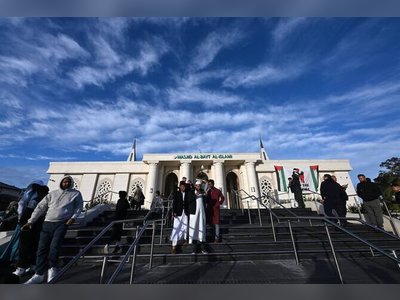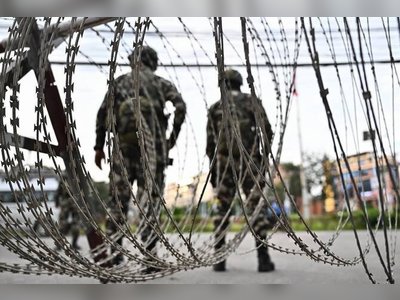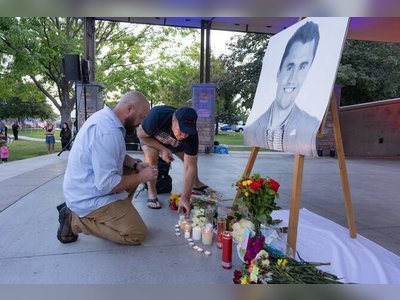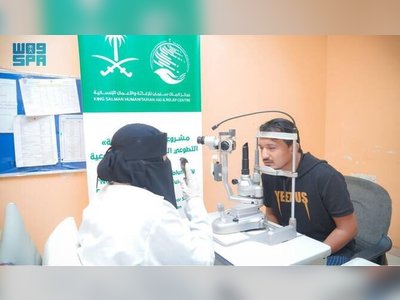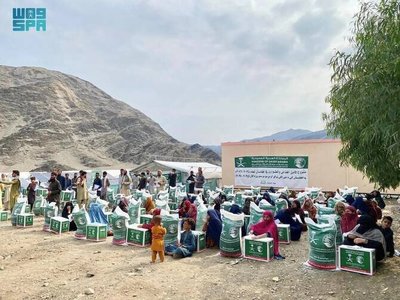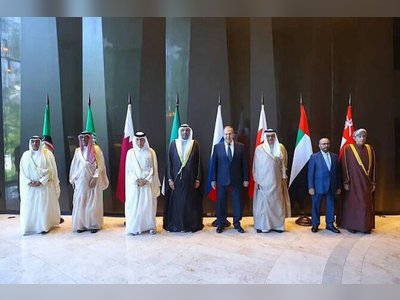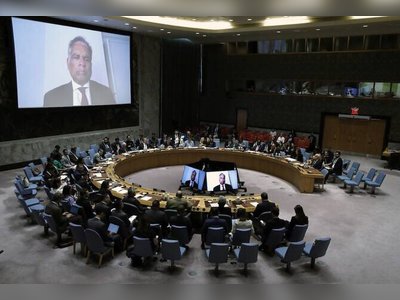
South Korean Workers Return Home After US Immigration Raid
Hundreds of South Korean workers detained at Hyundai-LG battery plant in Georgia are repatriated following a large-scale immigration operation.
SEOUL: Hundreds of South Korean workers are headed back to Seoul after being detained in a US immigration raid that has delayed the completion of Hyundai's battery factory.
The majority of the 475 individuals arrested last week at the Hyundai-LG battery plant under construction in Georgia were South Korean, prompting negotiations between Seoul and Washington.A specially chartered Korean Air Boeing 747-8I carrying 316 South Koreans and 14 foreign employees departed Atlanta’s Hartsfield-Jackson International Airport on Thursday.
The flight was said to have proceeded smoothly, with the expected arrival at 2:00 p.m. (0500 GMT) in Seoul.The Georgia immigration raid was the largest single-site operation since US President Donald Trump's administration launched a wide-ranging immigration crackdown in January.
It is believed that many of the detained South Korean workers were on visas that do not permit hands-on construction work, which would explain their detention.South Korean President Lee Jae Myung called the situation 'bewildering,' noting that it could negatively impact future investment.
He stated that Seoul was negotiating with Washington to ensure visa issuance for investment-related purposes continues normally.
South Korea has multiple plants in the US and has been incentivized by Washington's push to onshore manufacturing.Hyundai's CEO, Jose Munoz, revealed that the construction delay at their Georgia factory could be two to three months due to labor shortages caused by the raids.
He further mentioned that replenishing these positions with American workers may take time.The Korean Confederation of Trade Unions (KCTU), one of South Korea’s largest union groups, has demanded an apology from Trump and called for a halt in US investment plans.
They argue that the mass arrests were human rights violations and stand in solidarity with returning workers.LG Energy Solution thanked the Seoul government for its support during this crisis.
The firm was appreciative of the efforts to address concerns such as potential re-entry disadvantages for repatriated workers.
Images showing handcuffed workers during the raid caused public outcry in South Korea, prompting negotiations for their safe return without restraints.The immigration raid took place shortly after Trump welcomed South Korean President Lee to the White House.
The facility targeted is a $4.3 billion venture aimed at manufacturing battery cells in Georgia.
It's common practice among South Korean companies to use workarounds with visas during project development periods, which could have contributed to this incident.
The majority of the 475 individuals arrested last week at the Hyundai-LG battery plant under construction in Georgia were South Korean, prompting negotiations between Seoul and Washington.A specially chartered Korean Air Boeing 747-8I carrying 316 South Koreans and 14 foreign employees departed Atlanta’s Hartsfield-Jackson International Airport on Thursday.
The flight was said to have proceeded smoothly, with the expected arrival at 2:00 p.m. (0500 GMT) in Seoul.The Georgia immigration raid was the largest single-site operation since US President Donald Trump's administration launched a wide-ranging immigration crackdown in January.
It is believed that many of the detained South Korean workers were on visas that do not permit hands-on construction work, which would explain their detention.South Korean President Lee Jae Myung called the situation 'bewildering,' noting that it could negatively impact future investment.
He stated that Seoul was negotiating with Washington to ensure visa issuance for investment-related purposes continues normally.
South Korea has multiple plants in the US and has been incentivized by Washington's push to onshore manufacturing.Hyundai's CEO, Jose Munoz, revealed that the construction delay at their Georgia factory could be two to three months due to labor shortages caused by the raids.
He further mentioned that replenishing these positions with American workers may take time.The Korean Confederation of Trade Unions (KCTU), one of South Korea’s largest union groups, has demanded an apology from Trump and called for a halt in US investment plans.
They argue that the mass arrests were human rights violations and stand in solidarity with returning workers.LG Energy Solution thanked the Seoul government for its support during this crisis.
The firm was appreciative of the efforts to address concerns such as potential re-entry disadvantages for repatriated workers.
Images showing handcuffed workers during the raid caused public outcry in South Korea, prompting negotiations for their safe return without restraints.The immigration raid took place shortly after Trump welcomed South Korean President Lee to the White House.
The facility targeted is a $4.3 billion venture aimed at manufacturing battery cells in Georgia.
It's common practice among South Korean companies to use workarounds with visas during project development periods, which could have contributed to this incident.
